

Uh oh...
It appears that you're using a severely outdated version of Safari on Windows. Many features won't work correctly, and functionality can't be guaranteed. Please try viewing this website in Edge, Mozilla, Chrome, or another modern browser. Sorry for any inconvenience this may have caused!
Read More about this safari issue.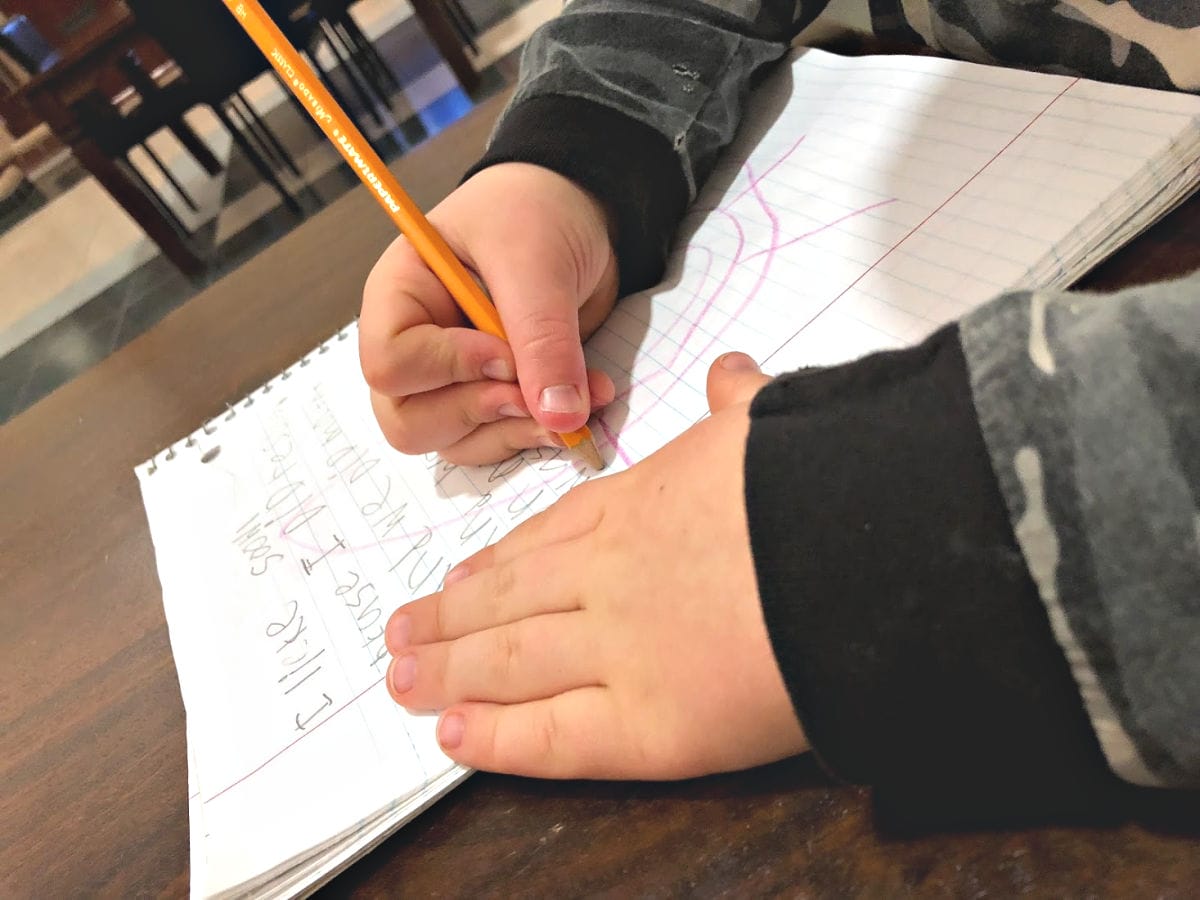

Gov. Asa Hutchinson has called it for Arkansas students: no more on-site school instruction for the remainder of the 2019-2020 school year. But academics in Arkansas are still in session. The hope is that students statewide will work through alternative instruction prepared by schools and districts and, as much as possible, maintain communication and connection with their teachers.
In the current state of seemingly unending bad news, the good news is that learning isn’t bound to paper-and-pencil tasks, nor should academic subjects be learned strictly in isolation. Indeed, some of the best education comes from simple, daily, real-life experiences. During this strange and stressful season, families can support their children’s education in informal ways that make sense for each family, building on concepts throughout their day’s normal progression and, of course, without ever leaving the house.
Preschool and Kindergarten
Most of the Arkansas instructional activities for early grades involve a good deal of movement, following verbal directions, and paying attention to the world around them.
One of the best ways to encourage skill development in young children is through simple household tasks. Matching socks and sorting silverware into the proper place helps them practice fine motor skills and ability to classify items based on a variety of properties: a foundation for future math success. Filling a water pitcher or individual drinking glasses using vocabulary like “empty,” “full” and “halfway” also reinforces mathematical concepts.
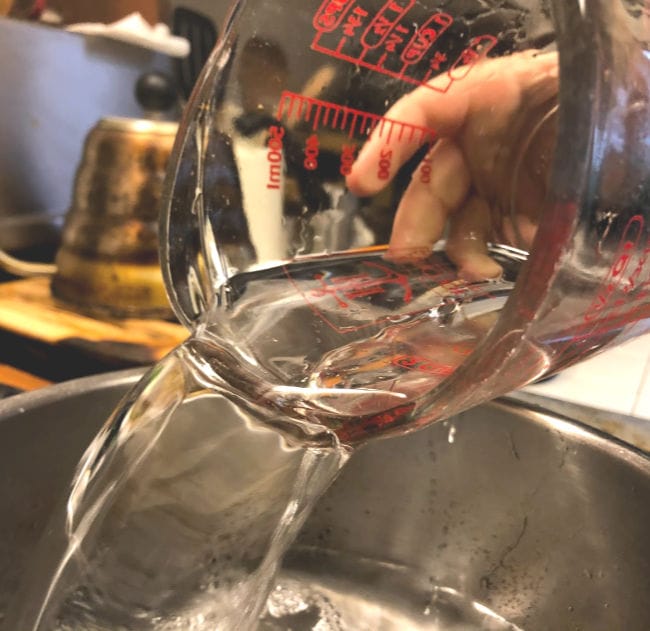
When setting the table, ask young children to bring you “two cups” and then “one more.” Talk about the colors and textures of the food being prepared and put on the table. How many people will be eating? Does everyone have what they need to eat the meal? What’s missing?
For writing and reading practice, children can help write or draw lists of items to purchase for when you’re all allowed back into the grocery store. It’s OK if they don’t yet know precisely how to spell words: even a few indecipherable scribbles based on knowledge of letter sounds keep brains engaged. During transitions and outdoor play, sing rhyming songs and recite short poems while clapping and tapping feet. These phonological awareness activities are crucial for successful reading skills. Movement keeps their bodies engaged in rhythm and large motor development.
First Through Third grade
Children in elementary school can learn a lot of math by serving as little sous chefs in the kitchen. Measuring ingredients and liquids (quantity), cutting foods into pieces (fractions), and following recipe directions (reading) meet criteria for a whole bunch of educational and life skills. Are you doubling recipes right now? That’s adding and multiplying whole numbers or fractions. Will that leftover casserole fit into the one-quart dish? That will require problem-solving and quantity estimation.
After your child has read for an assignment or pleasure, let them tell you about the chapter or section. For a meaningful geography education, look up on a map of any cities, states or countries referenced in the book. The same can be done when hearing about different places on the news. Where are these located? How far away? How would you have to travel to get there? A 10 to 15-minute session of research is all takes to integrate math and geography in a meaningful way.
Resources from Arkansas Public Broadcasting System:
Printable recipe cards
Color Country Flags
I Wanna See the States
Upper Elementary Students
When you’re ready to place that next online order for essentials, students in fourth and fifth grade can look in the refrigerator, freezer and pantry to see what needs to be replenished. What should be considered essential? Can your family do without and make do with something else? Let children see the prices and make an estimate of the total cost. Then, they can add up each number and come up with the actual amount.
Let students use free time and play as topics for writing assignments while schooling at home. The enthusiasm that comes from building with Legos, conducting (safe) science experiments and movie-watching marathons can be an invaluable resource. Before writing, let your children tell you about what they made or what they watched. Use the conversation to launch the enthusiasm onto the page with descriptive and detailed paragraphs.
The organization needed to keep track of assignments and manage online appointments with teachers and classmates is part of a set of mental skills called “executive functioning.” We use these skills to manage everyday tasks. Focus, attention, memory, planning and self-control can all be put to good practice by children who might need to take more responsibility for completing their work at home.
Children can stretch their independence by reading through their assignments in different subject areas and plan in what order to work. They can practice keeping track of time and managing their workload accordingly.
PBS Learning Media/Arkansas PBS is offering free features including syncing with Google classroom, a platform to organize assignments, a customized dashboard and a way to save and organize resources.
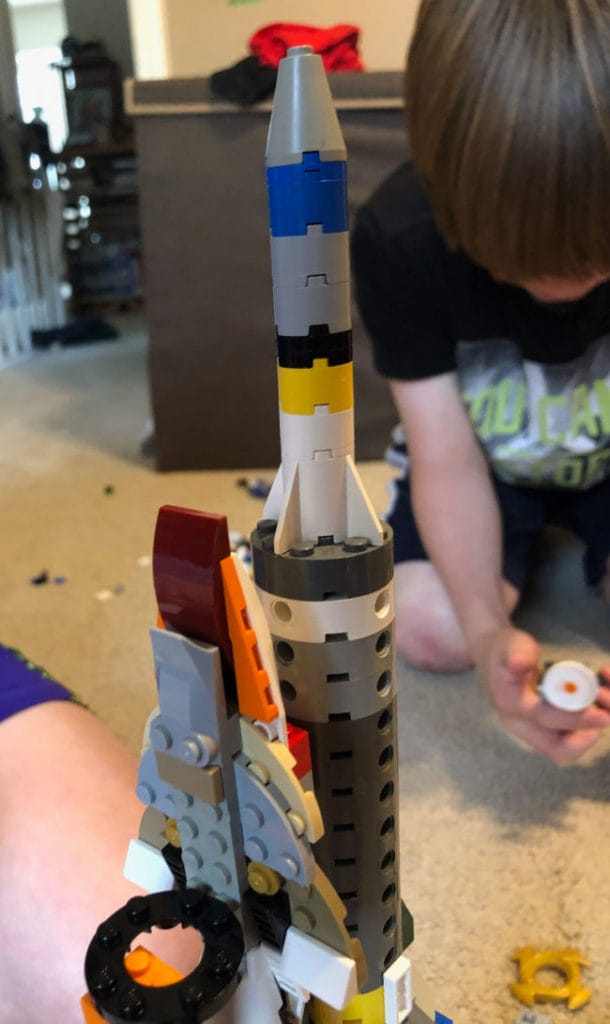
Subtract (Some Of) the Stress When Schooling at Home
1. Mix things up with variety while schooling at home. Work math problems, practice spelling words and draw all kinds of pictures in your parking lot, driveway or sidewalk. If they’re stuck on what to write, switch over to an art assignment and come back to the writing after.
2. Take assignments on a walk. Talk through a few writing problems to help children with ideas and vocabulary. Read math problems out loud and work on strategies to solve them. By the time you get back home, some of the prep work will already be done.
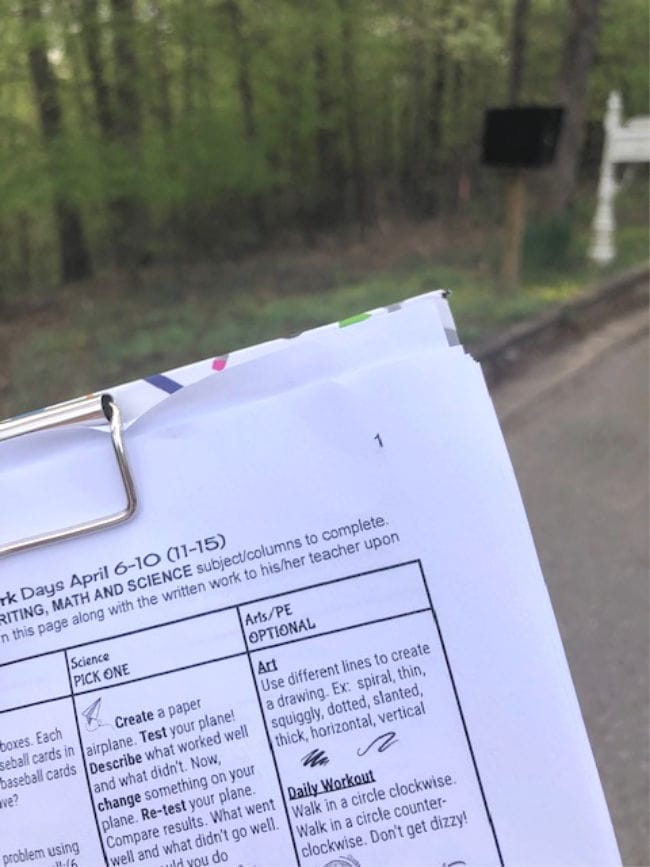
3. Integrate movement with math facts and reading. While doing physical education activities, children can practice math facts and letter sounds by saying them out loud.
4. Allow children to talk or journal about what they’re feeling right now.
5. Make learning efficient. An assignment to write about something you see outside can be mixed with a science project on observing changes in the environment. Use that to complete an art project that involves drawing leaves or rocks or clouds. Look up plants and trees native to Arkansas and see if, on your next visit outside, you can find a few of those.
Schooling at Home: Resources for Arkansas Families
Arkansas Alternative Methods of Instruction
Online Learning Resources from Arkansas PBS/IDEAS
We do the work.
You check your email.
Sign up for our weekly e-news.
Get stories sent straight to your inbox!






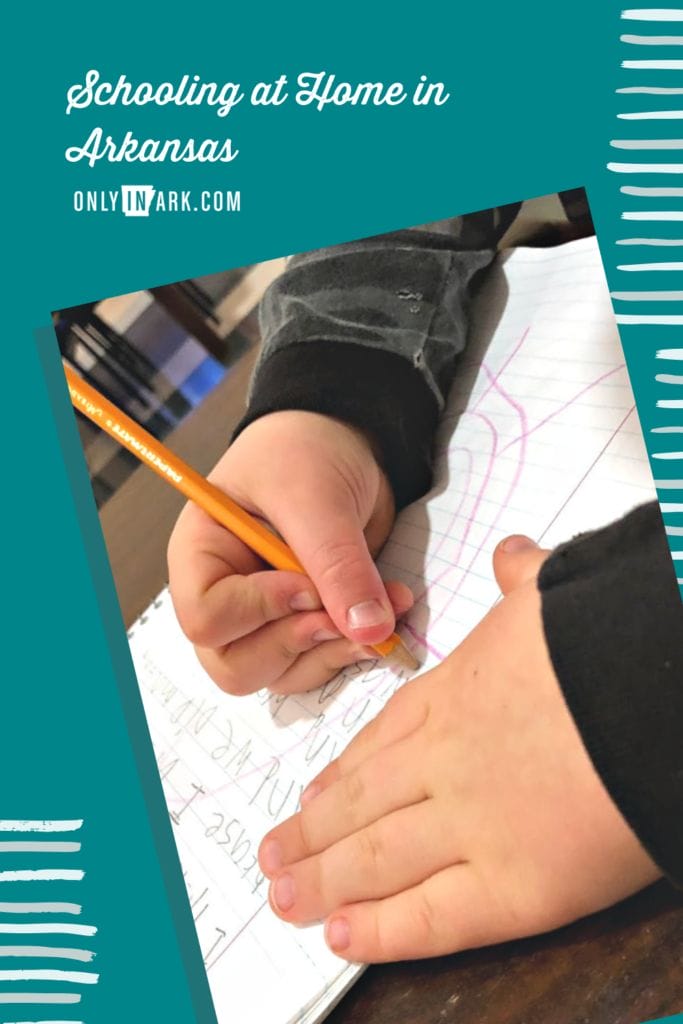


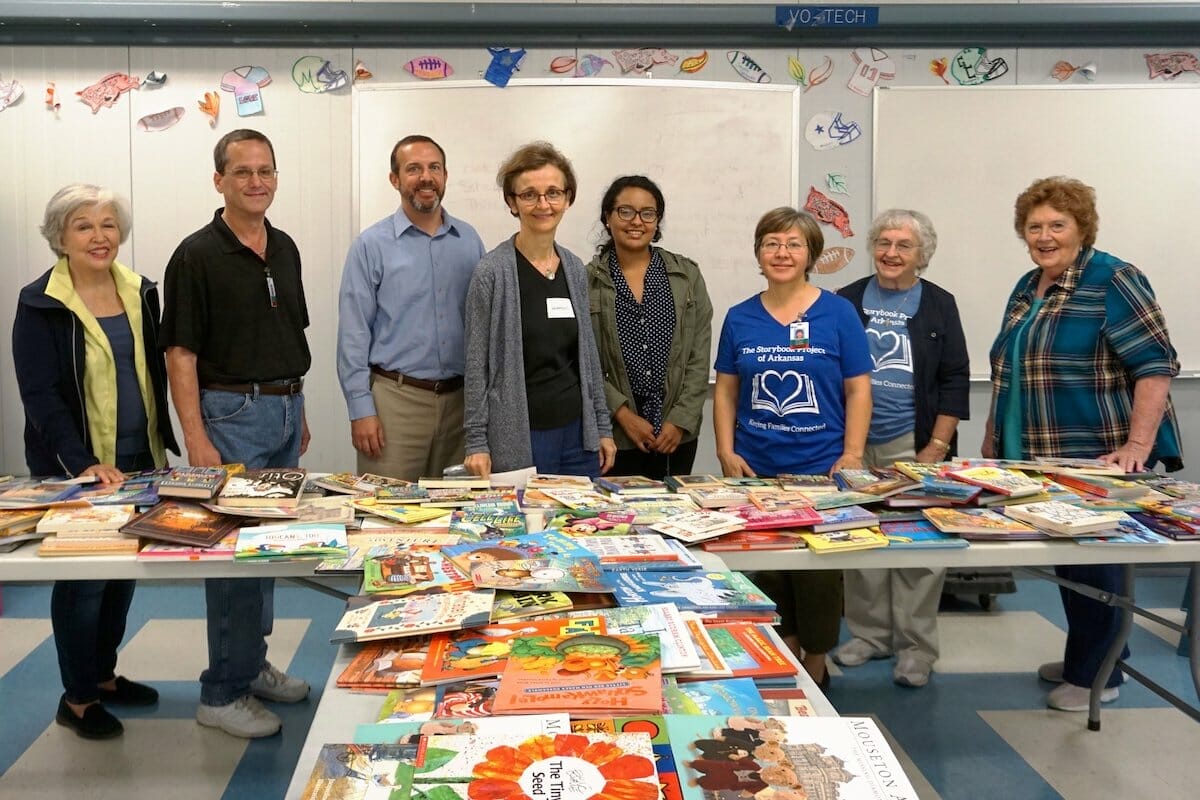

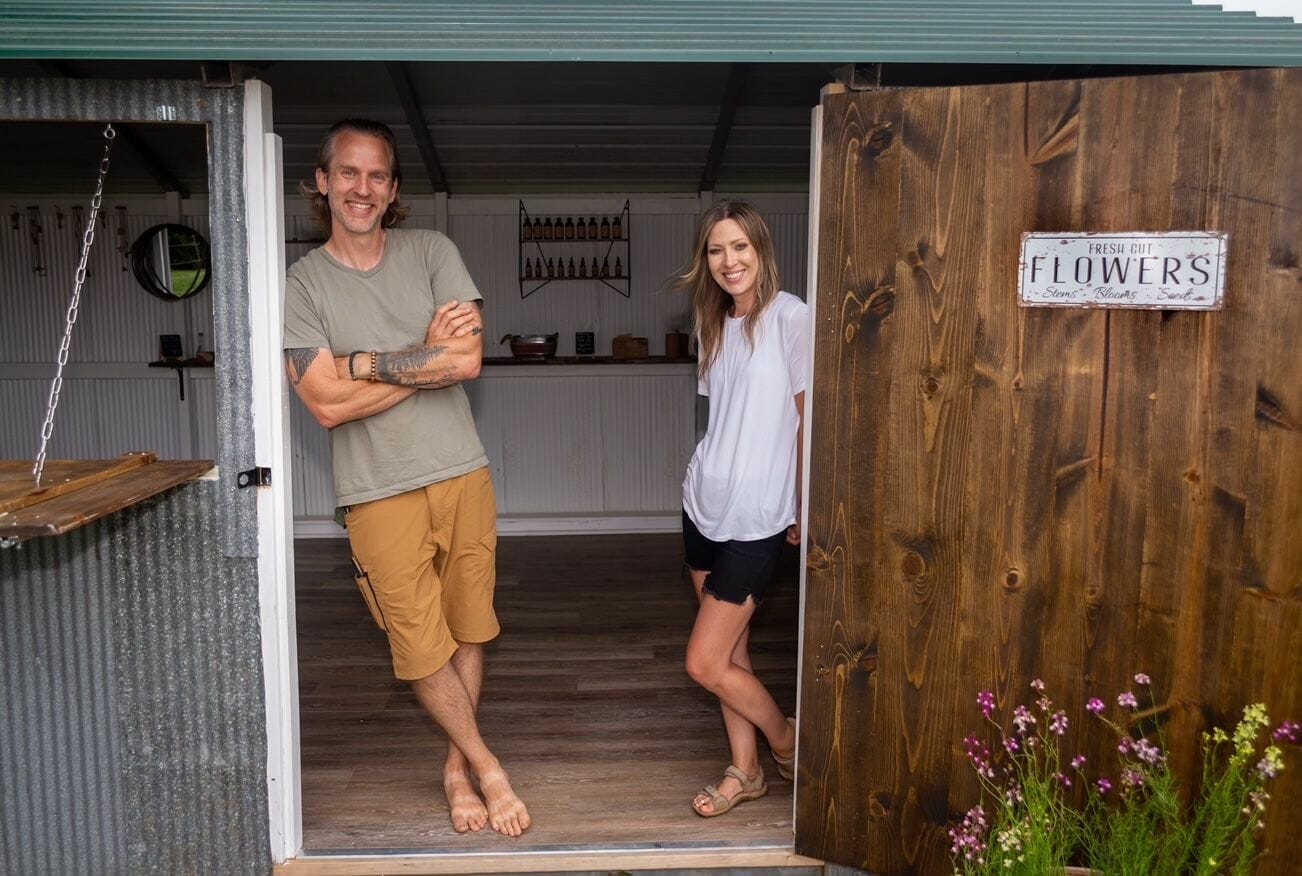

 Leave a Reply
Leave a Reply
[…] of OnlyInArk.com. As we are all staying home and life is a bit slower (unless, of course, you are homeschooling), it’s the perfect day to look back on our favorite stories from the past year and […]
[…] office to see if they can accept items for teachers at the same time you drop off AMI packets and other schoolwork. Be sure gifts are clearly labeled with the teacher’s […]